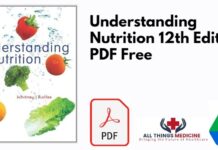Migraine headaches are always twinge, severe, painful, and recurring than usual headaches. Happy, comfortable, and controlled relief from migraine is a dream of everyone. People are looking for the exact root cause of migraine to find relief. Unfortunately, it is a neurological disease which means your brain is responding unusually to natural stimulations. Biochemical reactions against external stimuli trigger you. Migraine is not curable, so you can’t get rid of them. All you can do is help yourself with migraine. Let’s discuss, learn and dig out some interesting things about migraines!
What are Migraines:
Migraines are a critical and episodic condition of throbbing headache with nausea, numbness, vomit, and sensitivity to light. Migraine pain is not limited to a specific area of the head region. Migraines are dull at the start but are debilitating and pulsating gradually. People in this condition face trouble performing everyday activities like talking, studying, focusing, or working.
This is the most prevalent form of headache with 14% of people affected every year. Migraine headaches are triggered by some elements such as:
Stress, hormonal changes, unhealthy diet, improper sleep patterns, certain foods, traveling, strong smells, environmental changes, Light sensitivity, neck pains, etc.
All these factors have a connection with migraine but the ground roots are still unknown. Here’s how to diagnose a migraine.
Migraines with and without AURA:

There are different types of migraines:
A classical form of migraine that leads to a mental disturbance, is also known as Aura Migraine. People with this classical aura have prickling hands and feet. They are inept to figure out lines and have blind spots because of blurry or reduced vision. Migraine with Aura lasts only minutes but in severe cases can be up to 10-30 minutes.
Migraine is without Aura: Non-Aura migraine has a prevalence of 75% depending on gender, region, and age. This category of migraine headaches has episodic attacks of 4 to 72 hours. And has an intensity of mild to critical headaches, nausea, photophobia, and phonophobia.
In any of these migraines, you might feel exhausted, perplexed, and energy deficient, and the condition is referred to as post-drome.
How to help with Migraines:
Migraine is an untreatable condition of the brain. All you can do is consult your healthcare provider who will treat your migraine condition. According to your age, type of migraine, and level and effects of migraine he will prescribe your treatment. He will adjust your lifestyle, diet, and sleep-wake patterns. To reduce migraine severity a few general medications will be part of your treatment. OTC medication, like nonsteroids anti-inflammatory drugs, or acetaminophen will relieve your headache. Medications may also include Aspirin or ibuprofen. In acute conditions metoclopramide, chlorpromazine, and prochlorperazine help to reduce nausea. Some therapies are also advised such as acupuncture and acupressure. These therapies use pressure points to relax your body’s nerves. It’s time to go for some therapy to experience better health.
Home Remedies for Migraines:
No one knows the pain of how many weeks a year you have been tolerating the pressure of migraine. That’s the fact migraines are not curable nor have any surgical procedure for them. All you can do is try some traditional methods to relieve headaches and have less severe attacks. Or improve your health by having proper sleep, no longer gaps within each meal, meditating, or having physical exercise. Another effective treatment is massage and therapy of the scalp, feet, and neck. The use of cold-compress, acupressure, and acupuncture are also helpful therapies.
Each migraine attack might be different from than previous but you can try these edibles to improve your well-being. I would suggest you use:
- Ginger
- Avoiding caffeine
- Enough juices like blackberry, ginger, grapes, pear, cranberry, and water
- Use of bread, cereals, grains, pasta, cookies, corn flakes,
- Quinoa, moringa, rice, corn, oats, barley, and brown sugar
- More fruits and vegetables but onion, pea pods, and lentils are common triggers.
- Dates can also help you boost your neural crankiness.
It’s important to understand what irritates you and triggers your brain function. You can have much improvement when you know the type and frequency of headaches you have in migraine. It’s always a good decision to visit your neurologist before any self-treatment.
Pregnancy Migraines:
Women around the world are facing migraine. And the foremost reason is hormonal disturbance and stress. During pregnancy, a women’s body is changing structurally and functionally. This body shift can cause headaches. Which becomes the cause of aura migraine during pregnancy. This may give rise to cerebral venous thrombosis manifesting complications. Also, Increased headaches lead to cases of intracranial hypertension in pregnancy. When you’re pregnant medications are not advisable because of their adverse effect on the baby. The only option you’ve is mild pain killers to relieve headaches. Under your doctor’s supervision, you can have magnesium along with vitamin B6 supplements. This will improve the overall health of the mother and fetal baby.

Remember the siblings: Magnesium and Migraine:
You must be thinking about how magnesium will help with migraine. Let me tell you that magnesium is an important nutrient that aids in more than 300 enzymatic reactions, to strengthen the immune system, regulate the functions of nerves, and control blood pressure. Adding 100mg/day of magnesium to your daily meal will improve neurotransmitter functionality. Magnesium is a vital player to limit the narrowing of blood vessels, keeping the blood flow smoothly in the brain. During migraines, 400-600mg/day will be helpful for the increase the blood flow in the brain.
The use of almonds, soy, avocado, peanut butter, cashews, kidney bean, banana, and potatoes with skin are rich sources of magnesium. You can try them to boost your body’s defense and neural system.
Complications In Migraine:
The use of painkillers too often is not a good choice. It has many bad effects on your health. The human body is designed in a way that frequent use of anything makes us resistant to that. For example use of aspirin and ibuprofen for more than 14 days won’t relieve your headache. Similarly, your constant same diet plan won’t be effective against migraines. So, consult your health practitioner to have proper follow-up and guidance.
Take-Aways:
Migraine is a disorder of the brain. You can have blurry and unclear vision when having a migraine. This is not a curable disorder all you can do is improve your health and lifestyle. Try to figure out what helps you get relief and what causes disturbance and shift. Various supplements and medications can act as a companion to recovery from migraine. There are many types of migraines but migraine with no aura has more prevalent. Continuous and persisting headache with unbearable pain in hair roots and you’re not sure about the condition. Talk you your doctor without any delays to avoid a chronic condition of migraine.













